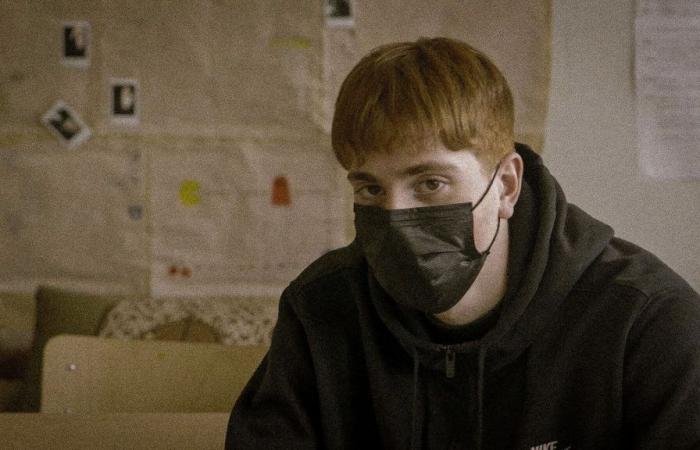The pandemic was an event like no other in living memory and the effects were life-changing. Now Belgian documentary "Entre-Temps" looks at the lives of children and adolescents in the immediate aftermath of the first national lockdown.
The work recently made its debut at two special screenings, in Liège and Brussels. Filmed during the reopening of Belgian schools and youth centres in September 2020, the documentary by Federico D'Ambrosio and Géraldine Brausch captures the concerns and hopes of young people caught in a bizarre limbo.
They are shown stepping tentatively into a new version of their lives after a long period of confinement. There is anger, confusion, and anxiety but also optimism for a new normality. Some talk eloquently while others are clearly struggling with stress and uncertainty.
The film is another insight into the long-term effects of confinement on our youth. Experts believe that we are only now beginning to see the impact the pandemic and subsequent lockdowns on young people.
Virtual disconnect?
Dr. Nikki Slocum-Bradley, a clinical psychologist and psychotherapist who works with children and young people at her practice in Tervuren, told The Brussels Times that “the pandemic really drove a downward spiral in mental health, especially for children and adolescents. The physical isolation stunted social connections.”
“Fortunately, we could connect virtually. Many children and teens, especially those who already had some social anxiety, were able to avoid their social discomfort by linking with peers from the safe obscurity of online platforms."
However, this type of communication does is less effective for building interpersonal skills and growing social confidence. "Ironically our 'connectedness' is, in some ways, leading to dis-connectedness. The lockdown augmented levels of social anxiety and depression.”
Dr. Slocum-Bradley highlights the "vast amounts of time" that many teens spend gaming or 'chatting' on devices. This comes at the expense of time spent together in physical proximity. As a result, social skills have declined and social anxieties have increased.
Related News
- Belgians increasingly hooked on sleeping pills, experts warn
- One in three young Belgians suffer from depression
During the lockdown, many children and teens were delighted to not have to go to school every day. But this significantly slowed the pace of learning while schools figured out how to operate under the lockdown guidelines.
When the pace picked up again with teaching via online videos or virtual lectures, pupils were often split with some thriving at being able to go at their own pace whilst others crumbled under the lack of interactive classroom instruction. "When children's self-esteem is based largely on their academic achievement and their physical appearance, it is very vulnerable to knocks.”
“Fortunately, mental health challenges were so pervasive during the pandemic that they became part of mainstream discourse. As a result, previous taboos have dissolved and more people are aware that mental health is something we all need to watch."
"Time invested in our mental health is time well spent. And it is much more likely to achieve the elusive goal of 'happiness' than putting it aside when running on a conveyor-belt of busyness.”

